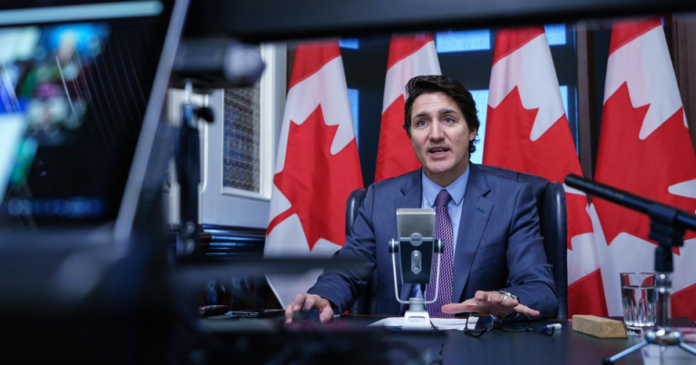Millions of Canadian taxpayer dollars are going to pay for government-produced podcasts hardly anybody is listening to.
An access-to-information request obtained by the Canadian Taxpayers Federation revealed the details behind podcasts hosted by several federal departments.
The podcasts in question require millions of dollars in taxpayer money to operate, including paying the salaries of public servants involved in the podcasts’ production.
“Canadians need the government delivering passports, not podcasts,” said federal director of the CTF Franco Terrazzano. “Can anyone explain why taxpayers are paying for government bureaucrats to spend a bunch of money on podcasts nobody listens to?”
According to government documents and records obtained by the CTF through freedom of information requests, at least $1.7 million has been spent on podcast production as of November last year.
However, that figure does not include the total cost to taxpayers, as the departments did not generally include salary expenses for the staff employed on the podcasts.
In the records where salary expenses were included, they accounted for the largest expenses by far.
“This isn’t providing taxpayers value for money, these podcasts are make-work projects for government bureaucrats we don’t need,” said Terrazzano.
One podcast called the Eh Sayers Podcast launched by Statistics Canada covers topics like climate change, systemic racism, gender identity and misinformation.
Of the 21 episodes produced since January 2021, it has an “estimated” 229 subscribers and cost $971,417 to date.
This means taxpayers were billed $4,241 for every subscriber.
The Eh Sayers Podcast, which requires three to five full-time Statistics Canada employees to produce, averages 1,414 downloads per episode and currently has 39 reviews on Apple.
In an episode discussing gender identity, the podcast opens with a “drag story time” reading from “drag king” Cyril Cinder.
In another episode entitled, “A Little Less Misinformation, A Little More True Facts, Please,” the host and guest discuss the problem of giving “both sides of an issue equal time or consideration.”
“If Statistics Canada bureaucrats want to produce podcasts on gender ideology, climate change or misinformation they can fill their boots on their own time with their own dime,” said Terrazzano.
“If you want proof there are too many bureaucrats in Ottawa with too much time and tax dollars on their hands, look no further than these podcasts.”
Canadian Heritage also produced a podcast which aims to “preserve” the country’s history “through interviews with current and former staff members” called CCI and CHIN: In Our Words.
The podcasts ran from 2019 to 2021 before being discontinued, producing a total of seven episodes and garnering 17 reviews on Apple.
It cost taxpayers $155,736 or a little over $22,000 per episode.
These costs included $9,000 for “podcast training and consulting,” $2,000 for equipment and another $115,000 in salary expenses for the full-time staff assigned to it.
Another podcast by Agri-Food Canada cost taxpayers $30,000 in expenses to present the “freshest ideas in agriculture and food.”
Another, called “Healthy Canadians” launched by the Public Health Agency of Canada, had four full-time employees which racked up a bill of $67,000, not including salary costs.
Including pay, pension, paid time off, shift premiums and other benefits, the average compensation for each full-time federal employee is $125,300, according to the Parliamentary Budget Officer.
Immigration, Refugees and Citizenship Canada also produced a podcast during the COVID-19 pandemic called Business Unusual, which employed 13 government workers, including two deputy ministers and two executives.
“No wonder the government is more than $1 trillion in debt when it’s scheming up useless make-work projects for bureaucrats that accomplish nothing more than burning through tax dollars,” said Terrazzano.
“With massive deficits and soaring debt, these taxpayer-funded podcasts should be the first thing on the chopping block.”















